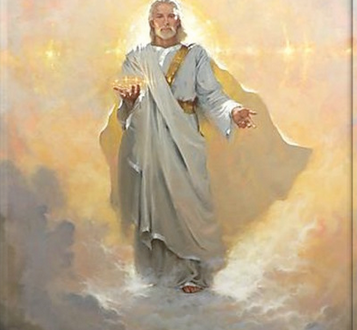Declutter our lives? In advance? As a prerequisite? Really?
For the second Sunday of Advent, December 8, 2019, the Revised Common Lectionary readings included Matthew 3:1–12. The focus of the passage was on John the Baptizer serving in his God-ordained role as the forerunner of the Messiah.
While I listened to the speaker that Sunday, I became increasingly pensive. This is because the homiletician talked at length about the necessity of parishioners “decluttering” their lives in preparation for the advent of the Savior.
Indeed, throughout the message, the speaker emphasized God’s children removing whatever was unnecessary, along with cleaning up whatever remained, in their lives. Allegedly, doing so was of utmost importance.
Just to clarify, the homiletician did not have in mind physical items that needed to be eliminated. Rather, the spotlight was on areas of sin that had to be excised.
Presumably, in order to make room for Jesus’ advent, it was imperative for congregants, beforehand, to jettison their unwholesome attitudes and actions. And if anyone feared they might struggle in their efforts to “declutter,” they were told they could ask a congregational peer (referred to as a spiritual “buddy”) for help. In short, morally sanitizing their lives was a necessary prerequisite for encountering the Son at Christmastime.
As I listened to the speaker, I began to wonder, Is the above really good news from God? Expressed differently, is Matthew 3:1–12 truly about Jesus’ followers “decluttering” their lives as a prelude—dare I say, a pretext—for His advent?
My contention is that the homiletician’s line of reasoning is a clear example of confusing what is God’s law versus what is His gospel. After all, at least on one level, the law insists that people make themselves righteous. This includes cleaning up—or, if you will, “decluttering”—their lives of all that is immoral.
To be candid, though, no amount of exhortation from the pulpit during the season of Advent (or, for that matter, during any other time of the year) can enable parishioners to be successful in removing unethical excesses from their lives. Instead, the tragic reality is that regardless of how long and hard parishioners (and anyone else) might try, they are doomed to fail in their efforts.
The gospel, then, has nothing to do with us “decluttering” our moral existence in preparation to encounter Jesus during the season of Advent. Rather, the good news is that the Father has already sent His Son to bring us the gift of His righteousness.
Neither are there any no preconditions that believing, repentant sinners must satisfy before they can receive God’s declaration of pardon. He alone gives them the ability to hear to the gospel and respond to it by faith each time it is proclaimed.
So, during the Advent season, the Father does not harangue His children (as in, “Do more!” and “Try harder!) to “declutter” their lives of whatever falls short of His infinitely perfect moral standard. Instead, He simply invites them to trust in His Son for eternal life.
Likewise, it is only after doing so, and while Jesus’ followers live in vital union with Him, that they receive the ability to reorder their lives. This circumstance, then, is an outgrowth of the Spirit planting the seed of faith in the soil of their hearts and enabling that seed to produce fruit consistent with their repentance.
James 1:18 (NIV) provides a fitting close to the above observations: “[The Father] chose to give us birth through the word of truth, that we might be a kind of firstfruits of all he created.”




